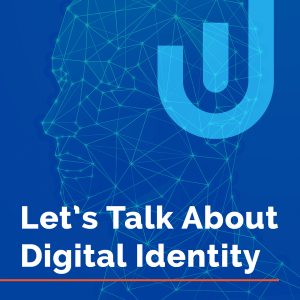
Let's Talk About Digital Identity
3 Favorites
The podcast connecting identity and business. Each episode features an in-depth conversation with an identity management leader, focusing on industry hot topics and stories. Join Oscar Santolalla and his special guests as they discuss what’s current and what’s next for digital identity. Produced by Ubisecure.
Location:
Finland
Description:
The podcast connecting identity and business. Each episode features an in-depth conversation with an identity management leader, focusing on industry hot topics and stories. Join Oscar Santolalla and his special guests as they discuss what’s current and what’s next for digital identity. Produced by Ubisecure.
Twitter:
@ubisecure
Language:
English
Website:
https://www.ubisecure.com/
Email:
marketing@ubisecure.com
Exploring the Importance of Identity Governance with Craig Ramsay, Omada – Podcast Episode 102
Duration:00:25:27
The Right Time to Invest in Identity and Access Management (IAM) with Jesse Kurtto, Ubisecure
Duration:00:28:02
Digital Identity Buzz: Passwordless, Identity Wallets & Digital Money with Heather Flanagan, Spherical Cow Consulting and David Birch, 15Mb
Duration:00:32:07
The Missing Identity Layer of the Internet with Gautam Hazari, Sekura.id
Duration:00:33:19
Generative AI in Identity Verification with Russ Cohn, IDVerse – Podcast Episode 98
Duration:00:26:29
The Role of Verifiable Credentials in Digital Identity with Riley Hughes, Trinsic – Podcast Episode 97
Duration:00:28:59
Unlocking Trust: Exploring vLEI & Self Sovereign Identity (SSI) with Drummond Reed & Andy Tobin, Gen – Podcast Episode 96
Duration:00:36:12
Exploring the Latest Updates in Global Assured Identity Network (GAIN) with Elizabeth Garber and Mark Haine
Duration:00:33:07
Single Sign-On Best Practices: How Organisations can Implement SSO with Keith Uber, Ubisecure
Duration:00:26:58
Understanding the Cultural Aspects of Digital Identity with Kalev Pihl, SK ID Solutions – Podcast Episode 93
Duration:00:33:59
Closing the Digital Identity Public Trust Gap with Joni Brennan, DIACC
Duration:00:36:13
Facilitating the Future of Finance: Open Banking & Open Finance with Michelle Beyo, FINAVATOR
Duration:00:28:28
Digital Signatures in Sweden with Magnus Kardell, Knowit
Duration:00:21:56
Privacy by Design: The Road to ISO with Ann Cavoukian and Katryna Dow
Duration:00:20:02
Online Banking-Based Identity Verification with Adrian Field, OneID – Podcast Episode 88
Duration:00:23:59
Digital Identities in Local Municipalities with Henk Marsman, SonicBee – Podcast Episode 87
Duration:00:37:45
BONUS: Understanding Hybrid IAM with John Jellema, Ubisecure – Podcast Episode 86
Duration:00:30:11
Demystifying Digital Identity for Businesses with Petri Heinälä, Fujitsu – Podcast Episode 85
Duration:00:23:57
Educate your staff or get hacked. Stories from a Social Engineer with Jenny Radcliffe, The People Hacker – Podcast Episode 84
Duration:00:31:04
Open Metaverse and the Importance of Self-Sovereign Identity, with Dr Mark van Rijmenam, The Digital Futures Institute – Podcast Episode 83
Duration:00:28:19